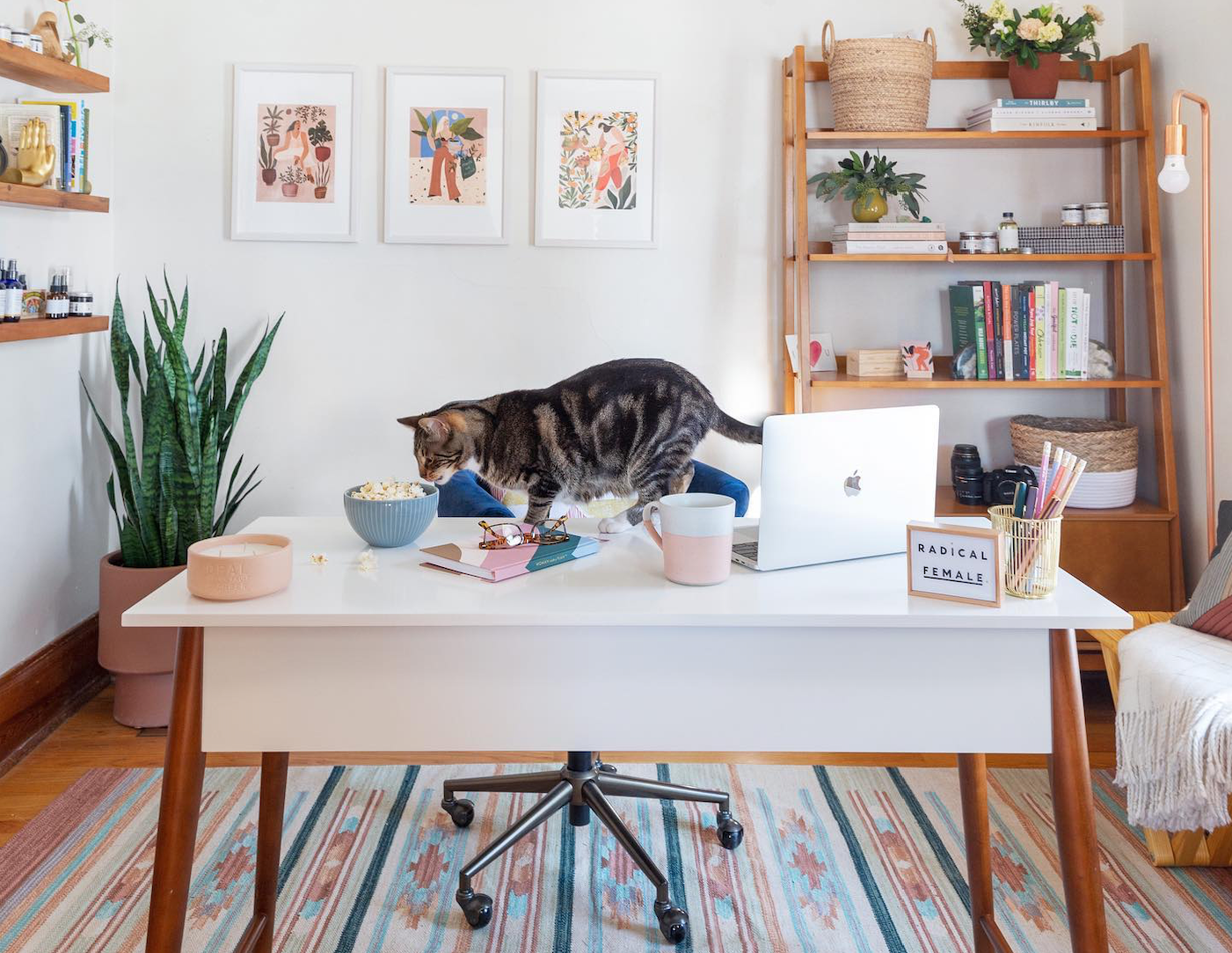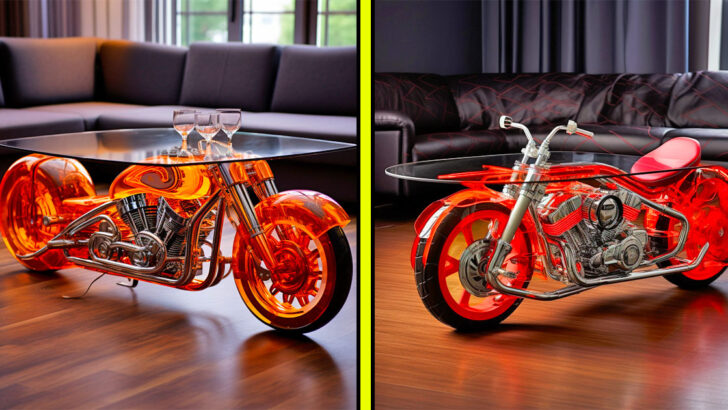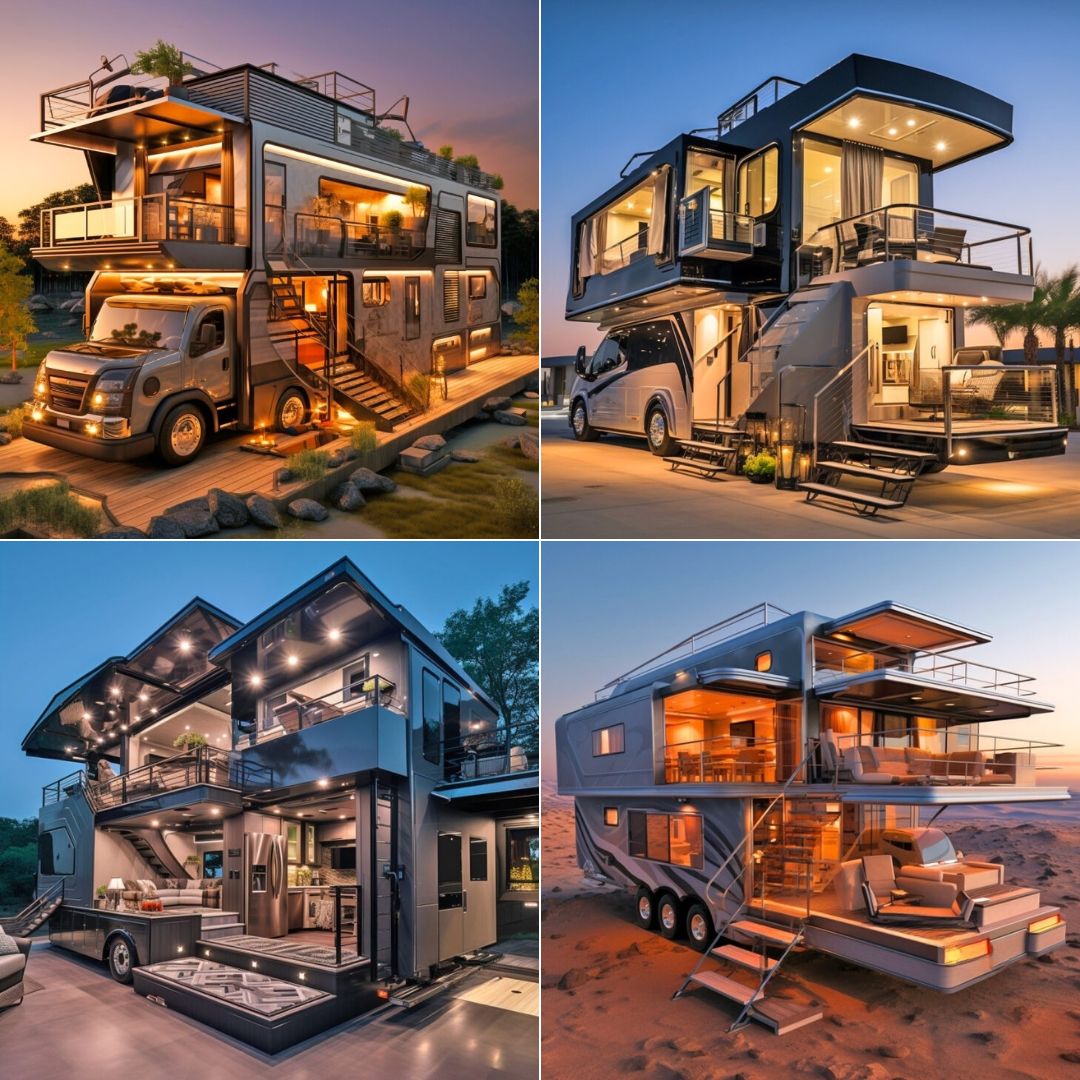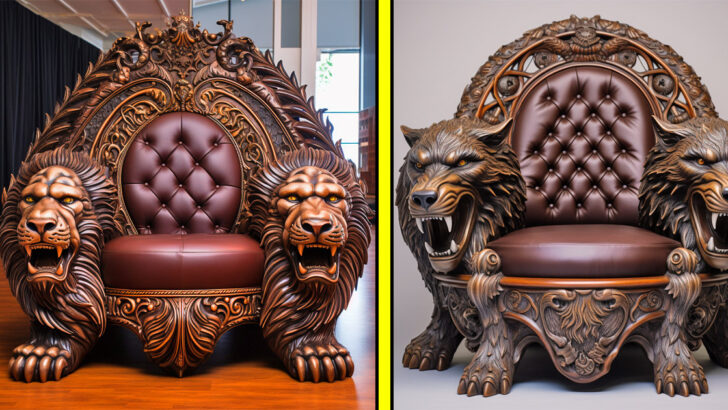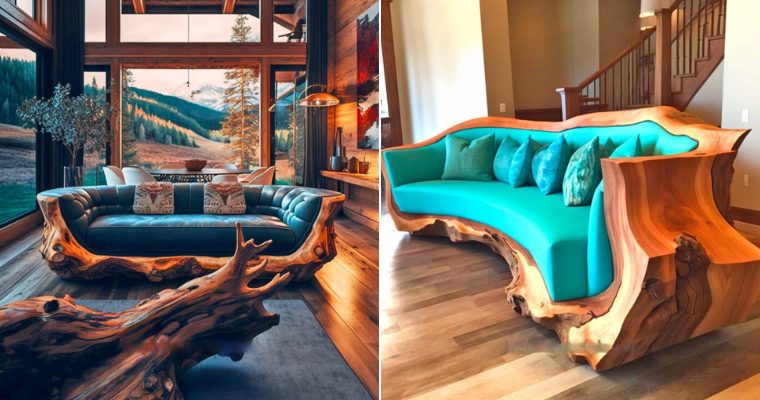How to Create a Home Office? Keep It Simple — and Separate
The good news is that any space can become an “office.” All you need is a work surface and a place to sit! But it can be easy to let work-life spill over into home life. That’s why it’s important to create a sense of separation with a designated workspace that’s free from clutter and distractions.
If you can, try to treat the wall space above your “desk” as part of your office. Decorate it “for a sense of functional style,” says Heather Goerzen of Havenly. Consider adding a corkboard or even a gallery wall to make the area feel different.
For a bolder approach, try wallpaper. “Wallpaper is a great way to make an office area feel separate from the rest of the room,” says Hygge and West co-founder Christiana Coop. “Add it to a nook or feature wall behind a desk to designate that as your workspace.”
A small rug under your desk can also help delineate the work zone and add a fun pop of personality.
Stay Organized
Messiness is the enemy of productivity! A successful home office is “all about having what you need and minimizing what you don’t,” says Alessandra Wood, VP of Style for Modsy. “Think about what you really use daily, and keep those things within arm’s reach. That tape dispenser you use once a month, for example, probably doesn’t need to take up prime real estate on your desk.”
“Give yourself the tools you need to have a successful workday, whether it’s a desk organizer, a charging station to keep your electronics fully fueled, or a whiteboard to jot down ideas,” says Johnson. But limit the knickknacks: Allow yourself only a couple personal items on your desk, like a family photo or a sentimental card. And avoid using your desk as a place to stockpile non-work stuff, like mail.
Once you’ve identified the things you really need, plan a layout for where those essentials will “live,” so that everything has its place. Johnson recommends keeping similar items — like pens and pencils, or electronics — together. “That way you’ll know where to find what you need at all times,” she says. “Repurpose a basket, box, or even a serving bowl to squirrel away chargers and other loose odds and ends,” adds Goerzen.
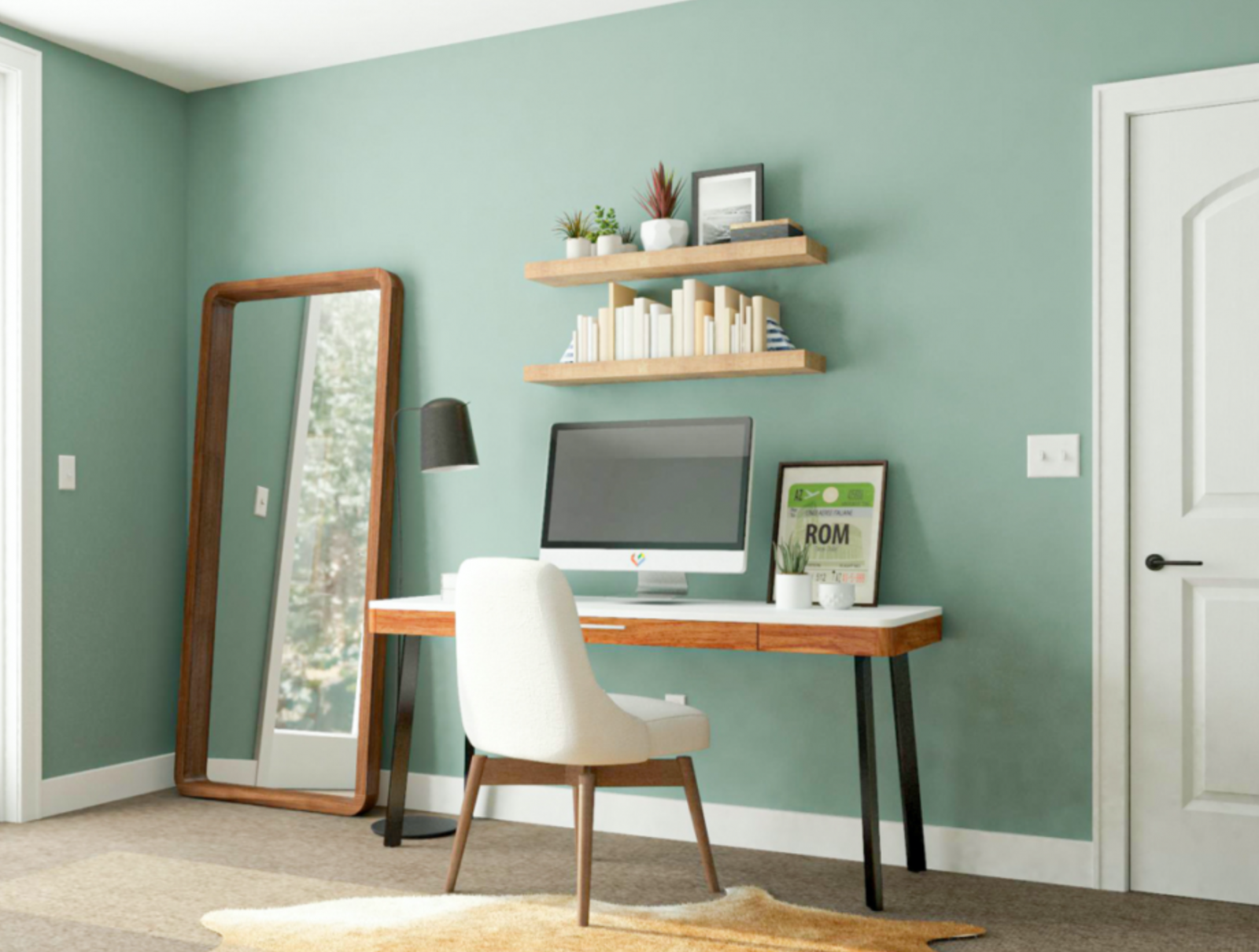
A pro tip from Lori Briels, Head Home Critic for luxury vacation rental company Plum Guide: “Be sure to place your monitor or laptop with the camera directly across from an appropriate background, for professional video meetings.”
Everything you’re not using should be stowed away. “Take time at the start or end of your workday to assess any out-of-place items that have found their way onto your desk, and put them back,” suggests Coop.
Choose a Good Chair
If you buy one new thing for your home office, make it a chair. A comfortable office chair is vital, particularly when your work requires that you sit all day — and it can make or break a space visually as well.
When choosing a chair, make sure you are able to sit up straight and your feet can comfortably touch the floor. Consider back support: You want to encourage good posture, with a slight angle on the backrest and deep seat depth. There are ergonomic options that give you more control over lumbar support, if you need it.
Another thing to consider? How the chair makes you feel. “A chair that looks, feels, and functions like the one at your normal office will probably make you feel like you’re at the office,” says Briels. “While your grandfather’s old oak swivel chair may make you feel 100% secure and at your best.”
And finally, a chair should look as good as it feels! There’s no reason to sacrifice style for comfort — many varieties offer both. If you’re going to spend money on something, make it something that will make you happy when you see it every day.
Maintaining proper lighting is the best home office decor idea of all: Not only does it make your space look better, it can also help you work better.
“Natural light is always our preference, as it’s scientifically proven to stimulate the brain and enhance productivity,” says Goerzen. To maximize sunlight, set up your work area near a window if possible. “The natural light will keep you energized all day,” adds Hygge and West co-founder Aimee Lagos.
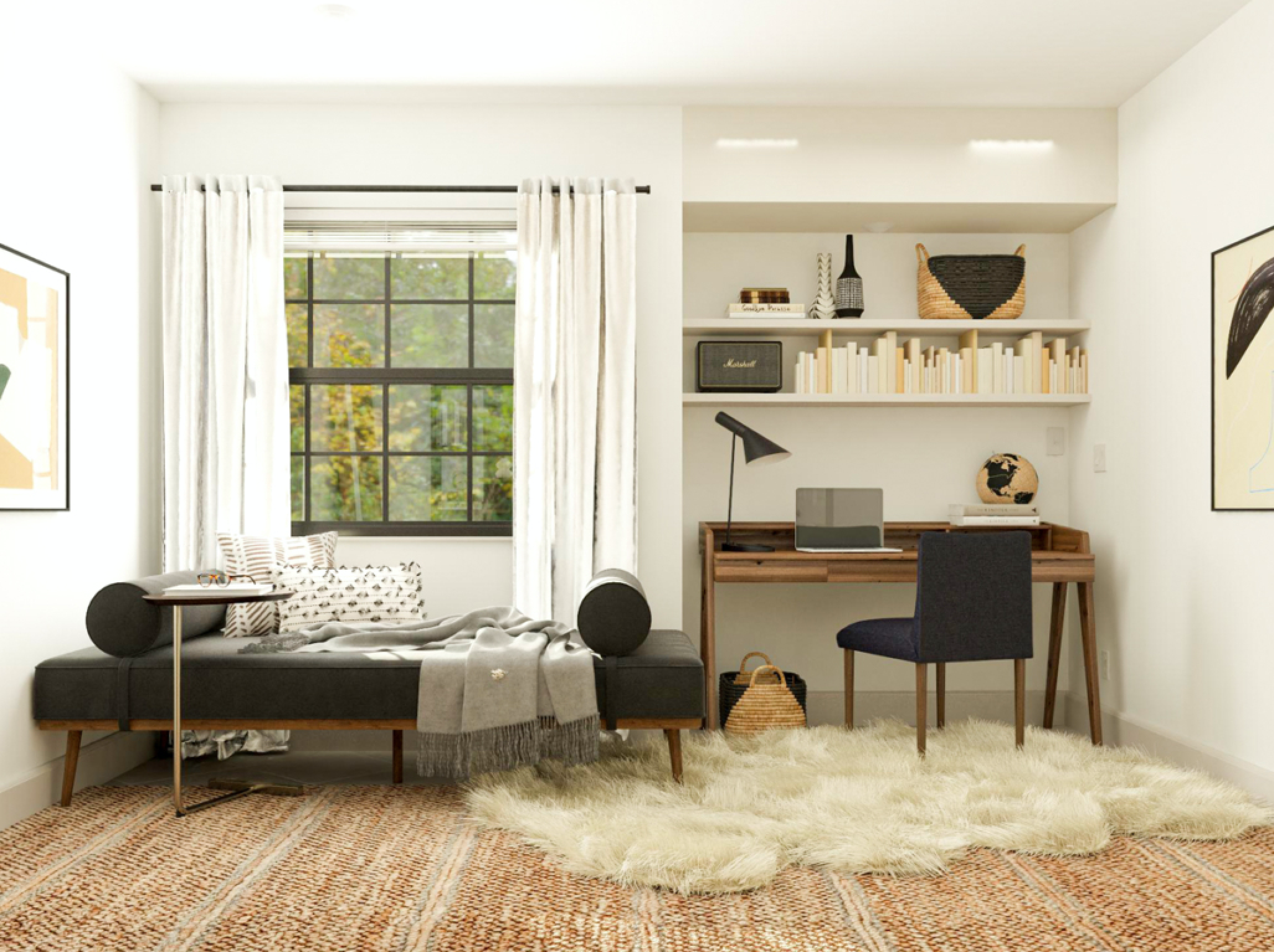
Not everyone has the option of a sun-lit desk space, of course. If you’re not set up near a window, try a task lamp that doesn’t take up too much space on the tabletop. “Ambient desk illumination is often more effective than overhead lighting, which can cause distracting shadows and make you feel sluggish,” says Goerzen. Also, avoid angling light directly on your computer screen to minimize glare.
Accessorize! (Within Reason, Of Course)
Even an office should have small touches of comfort. “Layer in textures for added coziness, light a candle, and incorporate plants for a connection to nature,” suggests Goerzen. “These little touches promote a sense of well being and will make ‘going into the office’ feel more inviting.”
Plants in particular can help relieve stress. “Orchids, succulents, or just a vase with some foliage in it are great options,” says Briels. If you don’t have space on your desk, try a hanging plant.
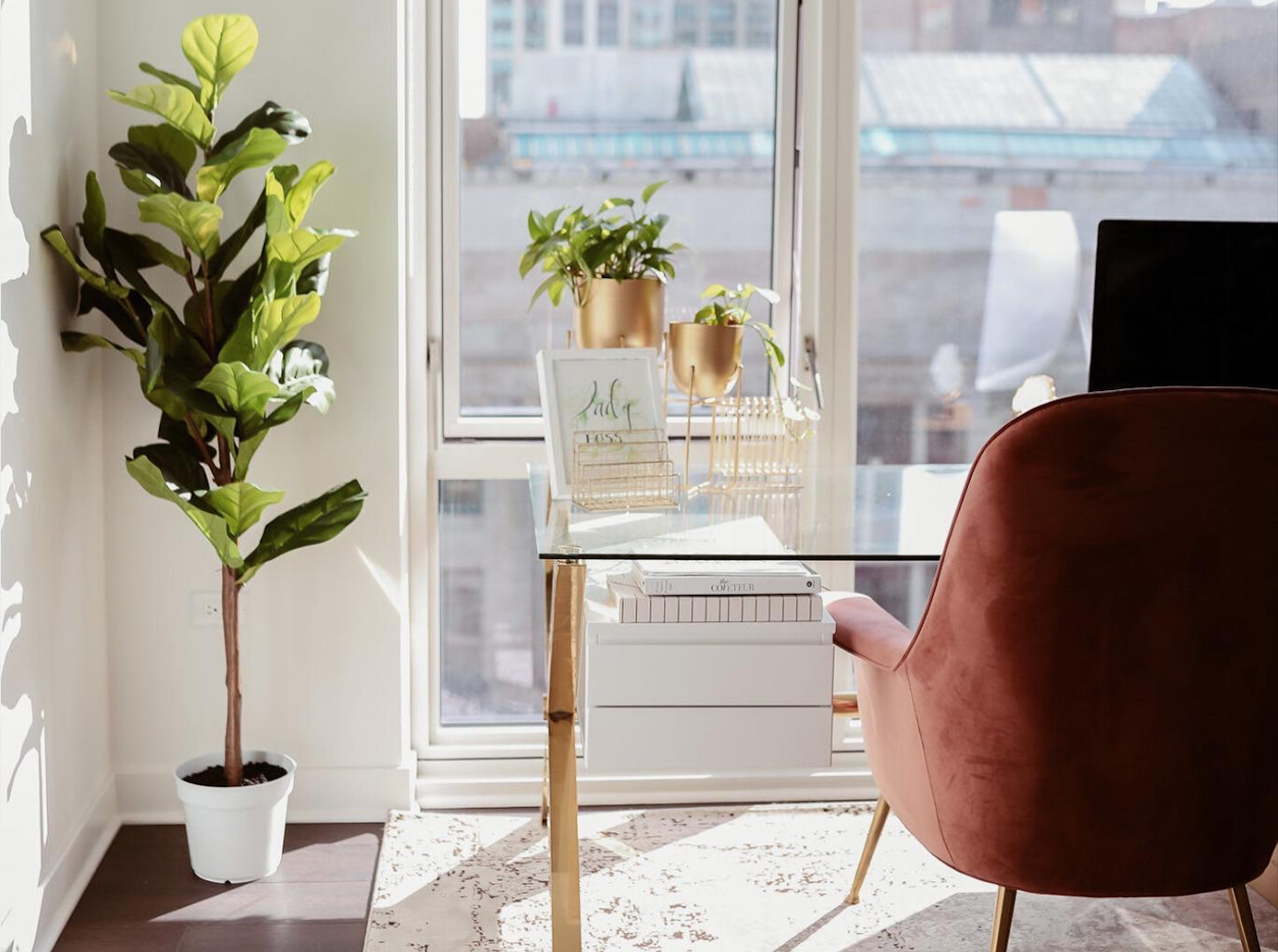
And don’t forget the art! If your desk isn’t near a window, use the wall in front of you to create an inspiring view. “Hanging artwork makes a space feel more finished,” says Goerzen. No prints? No problem. Tack up lifestyle images from magazines, photos, and mementos to create an informally stylish inspiration board.
Finally, remind yourself to take a moment to relax when you need to. It’s OK to take self-care breaks, even when you’re at home.


